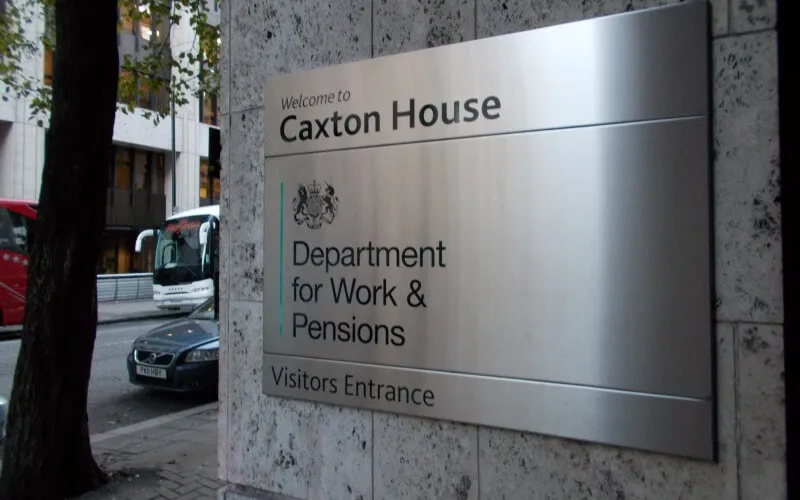The Department for Work and Pensions (DWP) has refused to release a report which would show which of its websites and other digital services are breaching its legal duties on accessibility.
Last month, DWP released a summary report from February which showed that fewer than one third of the websites and other digital services it runs complies with regulations.
That report showed that 36 of the 141 “live” digital services run by DWP were currently said to be “very high risk”, with another 23 considered “high risk”.
These services include websites, mobile phone apps and software used by the department.
But DWP has now made it clear to Disability News Service – in a response to a freedom of information request – that it will not release the full report, which details the digital services that are failing to comply with the law.
It claims that the report is exempt from being released under section 35 of the Freedom of Information Act because it “relates to the formulation or development of government policy”.
In its response to DNS, DWP’s central freedom of information team said: “On balance, DWP is satisfied that in this instance the public interest in maintaining the exemption outweighs the public interest in disclosure.
“Therefore, the information you seek will not be released.”
Stephen Timms, chair of the Commons work and pensions committee, told DNS that he was “concerned” by DWP’s failure to release the report.
He said: “The department has a very bad habit of hiding information which, according to government policy, should be public.
“This avoids, in the short term, ministers having to answer difficult questions.
“But, over time, it destroys people’s trust.”
Timms, a Labour MP and a former work and pensions minister, said: “The department’s long-term interests would be far better served by being open with the public.”
Of the 141 live services covered in DWP’s summary report, 24 are set to be “decommissioned”, but of the remaining 117, just 36 (31 per cent) were found to be compliant with the regulations.
Of those used by benefit claimants and other members of the public, only 24 of 56 services (43 per cent) are considered by DWP to comply with the Public Sector Bodies Accessibility Regulations 2018.
The regulations came into force in September 2018, more than three-and-a-half years ago.
Cabinet Office guidance warns that public sector bodies like DWP that do not ensure their website or app meets accessibility requirements “may be breaking the law”.
The guidance says common problems include websites that are not easy to use on a mobile phone or cannot be navigated using a keyboard, inaccessible PDF forms that cannot be read out by screen-readers, and poor colour contrast that makes text difficult to read.
Earlier this year, Timms played a key role in ensuring the publication of another report that DWP had been fighting to keep secret.
That report – The Uses of Health and Disability Benefits – found that many disabled people who receive disability benefits have been unable to afford essential living costs such as rent, heating or food, even before the current cost-of-living crisis.
DWP is also fighting a complaint lodged by DNS with the Information Commissioner’s Office (ICO) over its refusal to release secret reviews which would show the recommendations made by senior civil servants who have investigated deaths of benefit claimants linked to the department’s failings.
It is also refusing to release any details from a report into the effectiveness of its support for “vulnerable” claimants of universal credit, also subject to a complaint to ICO by DNS.
And it is refusing to release a copy of internal analysis it carried out into the impact that universal credit would have on disabled people claiming benefits, another complaint being investigated by ICO.
A note from the editor:
Please consider making a voluntary financial contribution to support the work of DNS and allow it to continue producing independent, carefully-researched news stories that focus on the lives and rights of disabled people and their user-led organisations.
Please do not contribute if you cannot afford to do so, and please note that DNS is not a charity. It is run and owned by disabled journalist John Pring and has been from its launch in April 2009.
Thank you for anything you can do to support the work of DNS…

 Government denies fixing Jodey Whiting inquest date to clash with Labour conference
Government denies fixing Jodey Whiting inquest date to clash with Labour conference Disabled people living on the streets, yards from former DWP offices
Disabled people living on the streets, yards from former DWP offices DWP ‘destroyed evidence’ on secret investigations rules, in latest ‘cover-up’
DWP ‘destroyed evidence’ on secret investigations rules, in latest ‘cover-up’